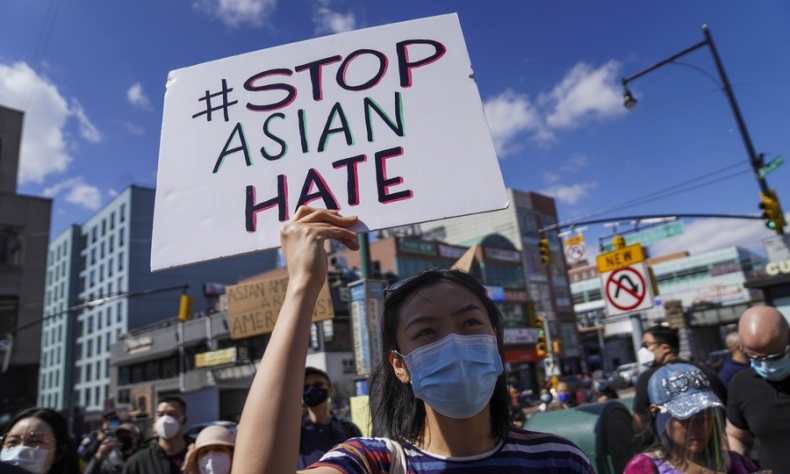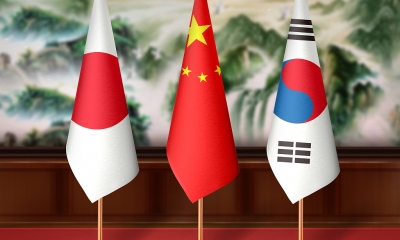Stop Anti-Asian Hate Is Not Enough

For anti-Asian hate to really be addressed, politicians must establish policies that allow for meaningful progress in civil rights and equality.
The recent shootings in Atlanta, Georgia, which killed eight people, were the worst possible demonstration of hatred towards Asians in the United States. Six of the eight victims were women of Asian descent, and they were targeted because of their ethnicity. A white American man stands accused of the killings.
Of course, America has a long history of hatred of “the other”, beginning with the Native Americans who inhabited the continent before the country was formed through to the institution of slavery and to today’s horrible treatment of Muslims and Blacks. And, yes, Asians have always been part of that “other.”
Dating to the Page Act, in 1875, which banned Chinese women from entering the United States and then the Chinese Exclusion Act, which followed seven years later and blocked all Chinese from immigrating to the country, America has always shown animus toward Chinese in particular and Asians in general.
Any discussion about politics contributing to anti-Asian feelings in the US would not be complete without referring to the vile rhetoric used by former President Trump. His angry language about China and its leaders provided the spark that made the murders in Atlanta possible.
But Atlanta is just one example.
According to the New Yorker, a respected weekly magazine, there has been a sharp rise in attacks against Asians throughout the US over the past couple of years. Quoting the magazine: “The Center for the Study of Hate and Extremism, at California State University, San Bernardino, recently surveyed police departments in sixteen major cities across the country and found that anti-Asian hate crimes had more than doubled between 2019 and 2020.”
For now, America’s political class is ignoring its complicity in creating anti-Asian hysteria. In offering support for America’s Asian community following the Atlanta murders, it has read from the same script used to rally other groups that have been victimized in the past. “Our silence is complicity,” President Biden said. Twenty-six governors added their names to this statement: “What is happening to Asian Americans is simply un-American. We condemn racism, violence and hatred against our AAPI (Asian American and Pacific Islander) communities, and we must do more to protect, lift up, and support the Asian American community.”
Words alone will not work, a point we will return to later.
America’s media and the entertainment industry also deserve blame for stoking anti-Asian hate. Author Viet Thanh Nguyen writes that on one hand many Asians are considered a model minority, successful, educated and not a threat to Whites, but they also are “assaulted by the racism of the airwaves, the ching-chong jokes of radio shock jocks, the villainous or comical japs and chinks and gooks of American war movies and comedies.”
Shortly after the deadly events in Atlanta, a US media critic wrote: “Reducing Asians to flat, heavily accented caricatures is a favorite pastime in this country.” Worse, the caricature of an Asian woman too often is that of sex worker, silently tolerating her anonymous life that offers no path to stability. If not tasked with satisfying men, then her media-created role remains subservient to someone else. It is no wonder Asian women are more than twice as likely as Asian men to be the target of a hate incident.
So, will the horror of Atlanta lead to something more than empty phrases and a few hashtags? Will this latest spasm of Asian hatred actually change America?
There is no reason to be optimistic. Consider how Americans have intentionally fractured their country over the past two decades. In rapid succession, the launching of war against Iraq, the rise of the Tea Party, the corrosive racism and sexism directed at Democratic Party presidential candidates, the embrace of fascist ideas by Trump and the constant mass killings by gun have placed Americans into distinct camps: The left believes the right is desperate to hold onto a worldview that has been discredited, while the right insists the left wants to create a society that destroys traditional American values.
For anti-Asian hate to really be addressed, politicians must establish policies that allow for meaningful progress in civil rights and equality. The corporate-owned media must consistently offer positive representations of all Asians. Americans must set aside their differences and agree that hate directed at any group must be eradicated. And, lastly, that “model minority” myth must be erased from people’s minds because it creates a false and dangerous idea that Asians are respected and not subjected to hate.
Right now, none of the groups mentioned above has the courage to do their part. Hashtags and rallies — in other words, silent and loud words — will have to do. And they will never be sufficient.
The author is Associate Professor, School of Informatics, Humanities and Social Sciences at Robert Morris University, the United States.
The article reflects the author’s opinions, and not necessarily the views of China Focus.
 Facebook
Facebook
 Twitter
Twitter
 Linkedin
Linkedin
 Google +
Google +







